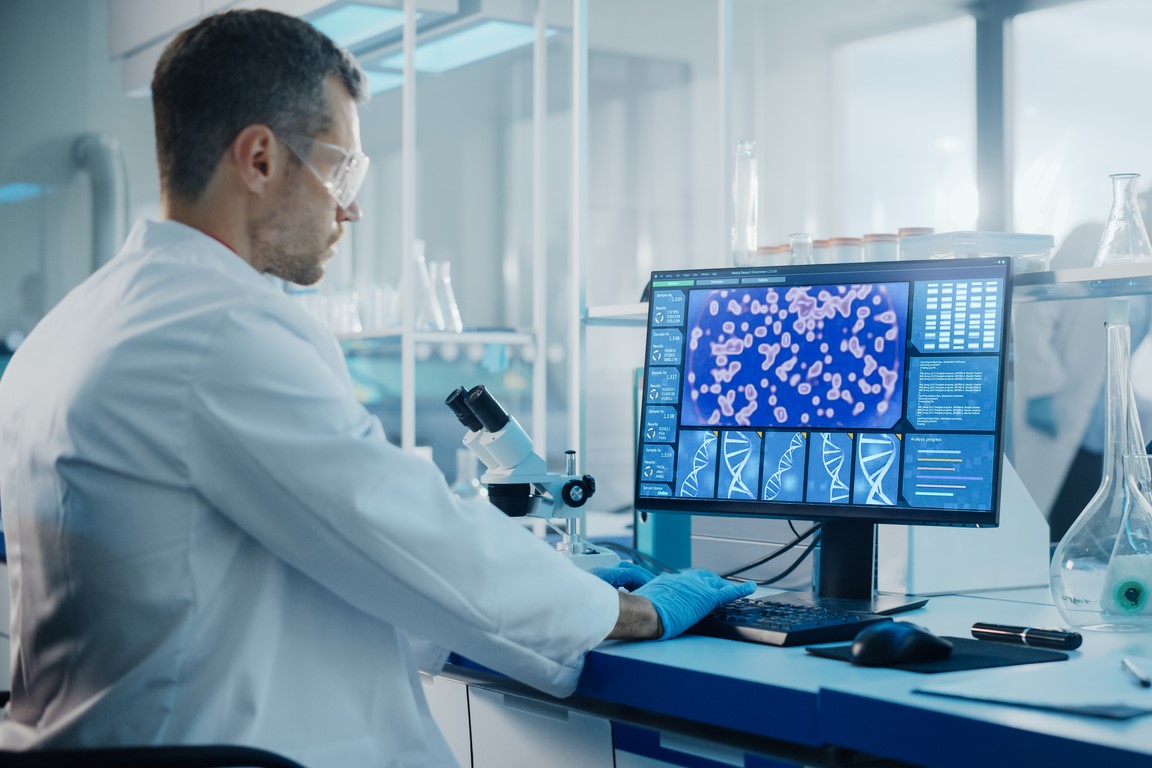Calls for Ukraine
Calls for Europe
Calls for USA

Scientists at Ludwig Cancer Research have developed a complete computational module that matches multiple molecular and genetic analyses of tumors and specific molecular targets of T cells, and uses artificial intelligence algorithms to develop personalized cancer vaccines for patients.
The development, validation and comparative evaluation of this computer module, called NeoDisc, is detailed in the current issue of Nature Biotechnology in a publication authored by Florian Huber and Michal Bassani-Sternberg of the Lausanne Branch of the Ludwig Institute for Cancer Research.
“NeoDisc provides unique understanding of the immunobiology of tumors and the mechanisms by which they avoid exposure to cytotoxic T cells of the immune system,” said Bassani-Sternberg. “This knowledge is invaluable for the development of personalized immunotherapies, and the analytical and computational engine behind NeoDisc is already being used here in Lausanne for clinical trials of personalized cancer vaccines and adoptive cell therapies.”
Many types of malignant neoplasms carry many random mutations that should make them more visible to the immune system. Such mutations produce abnormal proteins that cells, even malignant ones, are programmed to cut into short pieces – known as peptides – and “present” as antigens to invite patrolling T cells to attack.
The wide variety of these “neoantigens” is one reason why patients respond so differently to immunotherapy. On the other hand, neoantigens can be used to develop vaccines and other immunotherapies to uniquely target each patient’s tumor. Such personalized therapies are now being developed by researchers around the world.
Such efforts are technically challenging because not all neoantigens are recognized by a patient’s T cells, and even those that are recognized do not elicit a sufficiently potent T cell attack. Thus, one approach to developing personalized vaccines and cell therapies is to identify the neoantigens that are most likely to elicit a potent T-cell attack.
This requires sophisticated and large-scale analysis of the mutations that give rise to potential neoantigens, the molecular constructs (known as HLA molecules) that present them to T cells, and the molecular characteristics that ensure recognition by T-cell receptors. Bassani-Sternberg is one of the pioneers in this field of high-tech combination of large-scale biochemical and computational analysis known as “immunopeptidomics.”
The development of personalized immunotherapy is also facilitated by genomic analysis of tumor and blood cells representing the patient’s healthy genome, large-scale gene expression analysis known as “transcriptomics,” and sensitive analysis of the so-called immunopeptidome by mass spectrometry. Until now, however, these powerful technologies have not been combined into a single computational system for predicting which neoantigens identified in patient tumors should be used in vaccines or otherwise harnessed for personalized immunotherapy.
In addition, neoantigens are not the only type of antigens available for immunotherapeutic intervention. Cancer cells also mistakenly express fragments of normal non-coding DNA as proteins, genes that are normally expressed only during development, other mis-expressed gene products and viral antigens in the case of virus-induced tumors – all of which can trigger an immune attack.
“NeoDisc can detect all these different types of tumor-specific antigens as well as neoantigens, apply machine learning and rule-based algorithms to prioritize those most likely to trigger a T-cell response, and then use this information to develop a personalized cancer vaccine for a specific patient,” Huber says.
NeoDisc further sequences the potential antigens it detects and creates visualization of the heterogeneity of cancer cells in the tumor.
“Remarkably, NeoDisc can also detect potential defects in the mechanism of antigen presentation, alerting vaccine developers and clinicians to a key mechanism of immune evasion in tumors that could reduce the efficacy of immunotherapy,” says Bassani-Sternberg. “This may help them select patients for clinical trials who are likely to benefit from personalized immunotherapy, which is also important for optimizing patient care.”
In addition, in their study, the scientists showed that NeoDisc provides a more accurate selection of effective cancer antigens for vaccines and adoptive cell therapy than other computational tools currently used for these purposes.
To further improve NeoDisc’s accuracy, the researchers will continue to provide it with data from a variety of tumors and integrate additional machine learning algorithms into the software suite to speed up the learning process and improve prediction accuracy.
Please rate the work of MedTour
